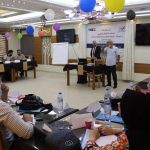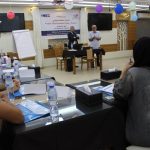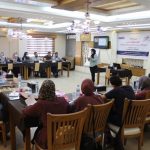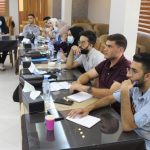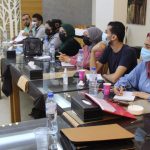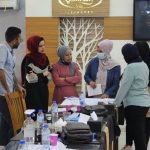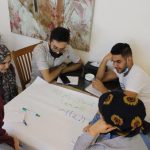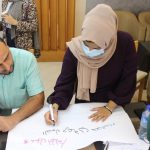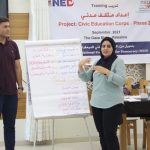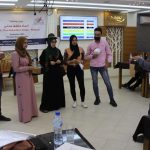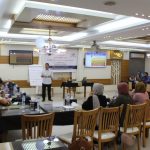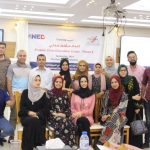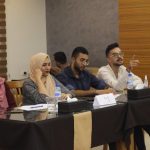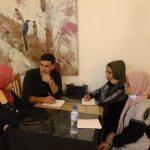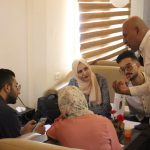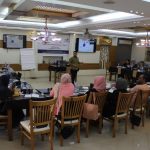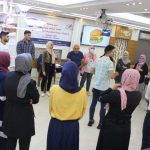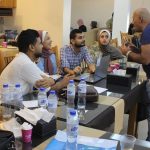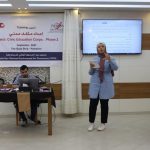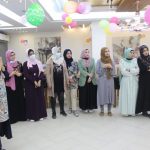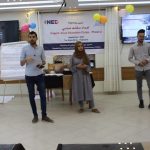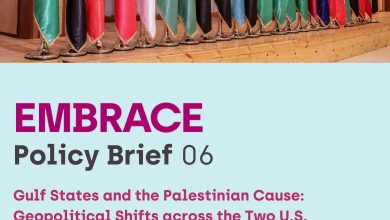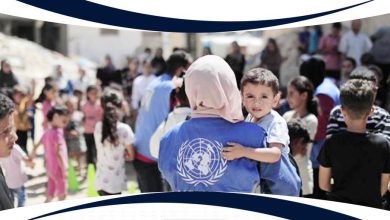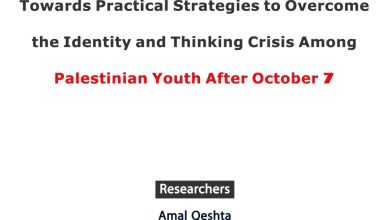Pal-Think concludes training program “Preparing a Civic Educator”
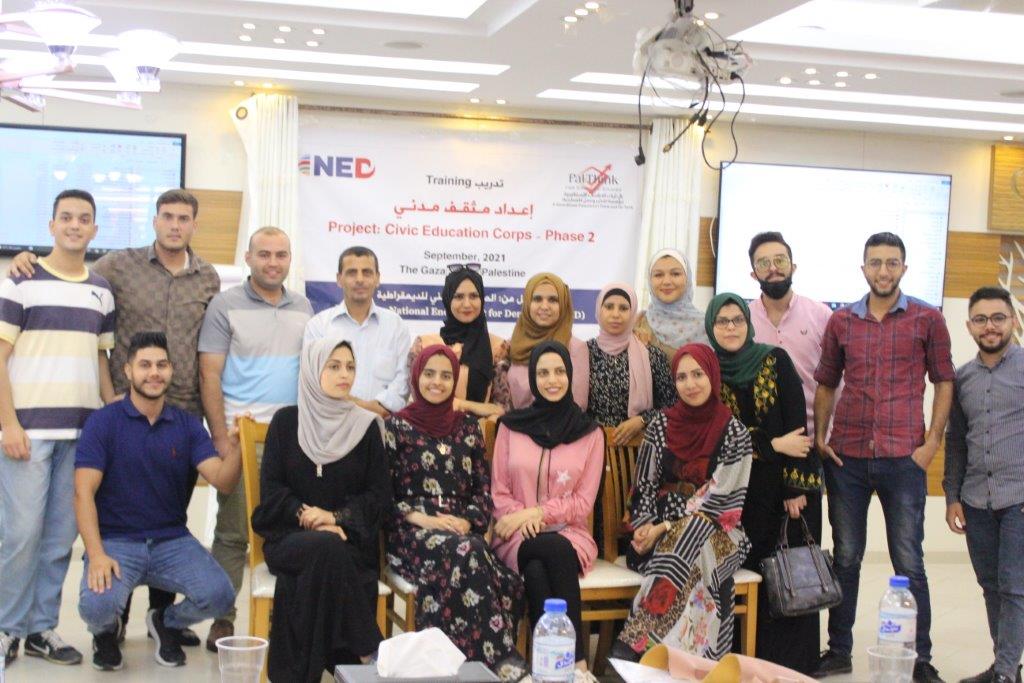
Pal-Think for Strategic Studies concluded a specialized training program entitled “Preparing a Civic Educator” targeting 25 women and men university students and fresh graduates which focused on developing the trainees’ research and knowledge skills on issues of human rights, political participation, and democracy.
This is part of the “Civic Education Corps” project implemented by Pal-Think for Strategic Studies, funded by the National Endowment for Democracy (NED), which aims to create a youth generation that believes in the principles of democracy and human rights concepts in the Gaza Strip and to qualify young people who can disseminate these values in their society.
The project coordinator, Ms. Sally Al-Sammak, stated that “this project comes as a continuation of the project of “Civic Education Corps-Phase One”, which showed successful results and outputs, the most important of which is the ability of young people to transfer knowledge to their peers in universities and the rest of society groups regarding human rights and democracy issues”. She indicated that this training greatly contributes to developing the capabilities of the trainees in issues of democracy, human rights, research skills, and presentation. She emphasized that the trainees will not end their role with the end of this training program, but rather they will work to implement a series of awareness-raising sessions in cooperation with civil society organizations in the Gaza Strip. In addition to preparing research papers discussing issues and topics related to democracy and human rights, as well as conducting radio episodes. She confirmed that Pal-Think pays special attention to young people and always seeks to develop their skills in all fields.
It is noteworthy that the training program lasted for seven days and was supervised by a team of highly qualified and expert trainers. On the first day, there was a discussion about international human rights law and the Palestinian situation, linking the issue to reality and the international obligations of the State of Palestine within the framework of changes taking place at the regional and international levels, and the handling of local authorities in Palestine with those obligations. On the second training day, the focus was on the Palestinian political system and democracy, by explaining the concept of the political system and the concept of democracy, and the most important indicators of democracy that must be available in any political system and applying this to the Palestinian cause. The historical stages that the Palestinian political system has gone through and the impact of each stage on the current Palestinian situation were also explained. Finally, there was talk about building a democratic Palestinian political system that fits with the current requirements. As for the third day, it was devoted to talking about lobbying and advocacy skills in issues of democracy and human rights, explaining the stages of preparing the lobbying and advocacy campaign, the conditions for choosing the case, how to choose the most appropriate tool, and showing common mistakes that could lead to the failure of the lobbying and advocacy campaign. On the fourth day, many titles were addressed, the most important of which is the concept of creativity and creative thinking, its components, characteristics, patterns and models, curves of personality traits and creative knowledge, stages of creative thinking, and its manifestations, and barriers and obstacles to creative thinking. The fifth and sixth days, were about research writing skills, a statement of the purpose of writing, a mental map for research writing, steps for writing a research paper, how to identify and formulate a research problem, a summary of the research paper, and other topics that would develop the trainees’ research skills. As for the seventh and last day, which was entitled “Presentation Skills”, it included effective presentation and its methods, the stages of the presentation and presentation process, communication skills with the audience, and a statement of the mistakes in the presentation process, and the most important tools and means that can be used in the presentation process.
During the training program, a variety of training methods were used, including brainstorming, case studies, role-playing, workgroups, and other participatory training methods.

